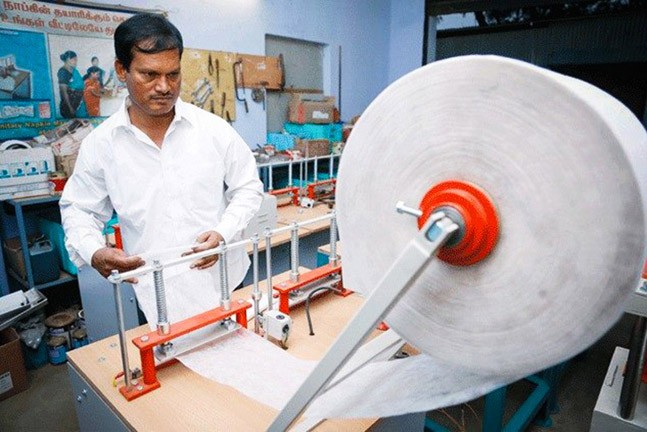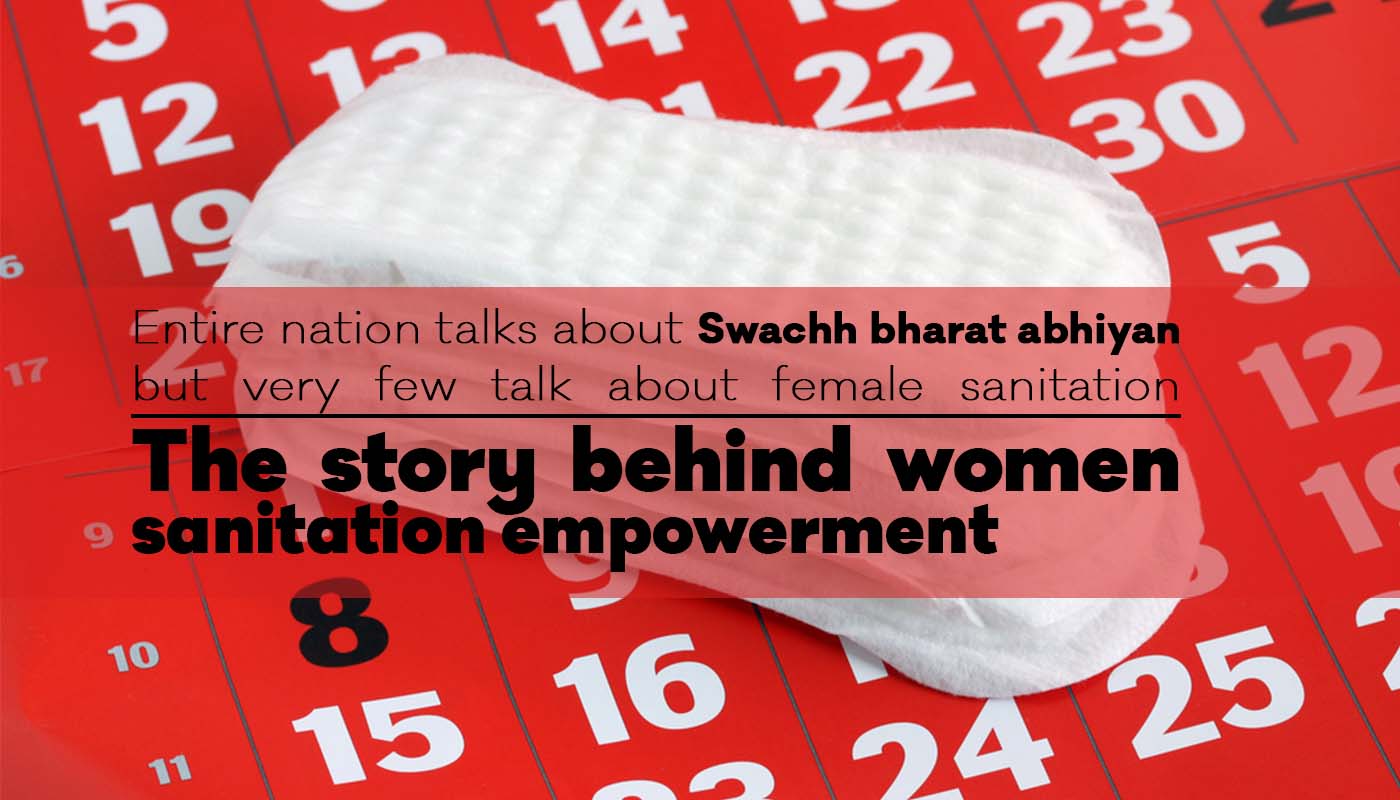When Twinkle Khanna wrote her novel ‘The Legend Of Lakshmi Prasad’ little did the Indian newspaper columnist, film producer, film actress and interior designer know that it has the fire to fuel the new CSR gamut of exploring the widest range of opportunities in the form of sanitation needs of women of India.
In the upcoming movie, Padman, she goes on to re-tell the story of struggles of a man who sets out to find a low cost solution to sanitary napkins so that his wife could have comfort and hygiene. I say re-telling because this story is clearly inspired from the life of Mr. Muruganathan who as a social entrepreneur, is credited with the invention of a low cost “PAD” making machine.
 Arunachalam Muruganantham (born 1962) is a social entrepreneur from Coimbatore in Tamil Nadu. He is the inventor of a low-cost sanitary pad-making machine and is credited for innovating grassroots mechanisms for generating awareness about traditional unhygienic practices around menstruation in rural India. His mini-machines, which can manufacture sanitary pads for less than a third of the cost of commercial pads, have been installed in 23 of the 29 states of India. He is currently planning to expand the production of these machines to 106 nations.
Arunachalam Muruganantham (born 1962) is a social entrepreneur from Coimbatore in Tamil Nadu. He is the inventor of a low-cost sanitary pad-making machine and is credited for innovating grassroots mechanisms for generating awareness about traditional unhygienic practices around menstruation in rural India. His mini-machines, which can manufacture sanitary pads for less than a third of the cost of commercial pads, have been installed in 23 of the 29 states of India. He is currently planning to expand the production of these machines to 106 nations.
In 1998, he married Shanthi. Shortly after, Murugananthan discovered his wife collecting filthy rags and newspapers to use during her menstrual cycle, as she found the branded sanitary napkins made by multinational corporations expensive. Troubled by this, he started designing experimental pads. Initially, he made pads out of cotton, but these were rejected by his wife and sisters. Eventually, they stopped cooperating with him and refused to be the test subjects for his innovations. He realized that the raw materials cost 10 paise, but the end product was sold for 40 times the manufacturing price.He looked for female volunteers who could test his inventions, but most were too shy to discuss their menstrual issues with him. He started testing it on himself, using a bladder with animal blood, but became the subject of ridicule when the “sanitary pad” was discovered in his village. As menstruation is a taboo subject in India, it left him ostracized by his community and family. He distributed his products free to girls in a local medical college.
It took him two years to discover that the commercial pads used cellulose fibers derived from pine bark wood pulp. The fibres helped the pads absorb while retaining shape. Imported machines that made the pads cost INR 35 million. So, he devised a low-cost machine that could be operated with minimal training. He sourced the processed pine wood pulp from a supplier in Mumbai and the machines would grind, de-fibrate, press and sterilize the pads under ultraviolet before packaging them for sale. The machine costs INR 65,000, a price at least 10 times cheaper than the fancy machines used by the multinationals.
In 2006, he visited IIT Madras to show his idea and received suggestions. They registered his invention for the National Innovation Foundation Grassroots Technological Innovations Award and his idea won the award. He obtained seed funding and founded Jayaashree Industries, which now markets these machines to rural women across India. The machine has been praised for its simplicity and cost-effectiveness, and his commitment to social aid has earned him several awards.

Despite offers from several corporate entities to commercialize his venture, he has refused to sell out and continues to provide these machines to self-help groups (SHGs) run by women.
How can CSR help Muruganantham?
Come to think of a socially ostracised subject as Menstruation, will corporates open sanitary napkin making and vending machines in remote area and will they ever be used? Is this question what is keeping the corporates from entering a domain as sensitive as this ‘taboo’ subject?
The idea is when CSR talks about Women Empowerment, it should take into account the grassroot core issues that leaves women, especially rural population disempowered.
Women Sanitation and Hygiene is an issue often neglected by the CSR initiatives, underplaying its importance in even the CSR manual. Come to think of a scenario, whereby the corporates start spending the 2 percent of their profits on sanitary napkin making and vending machines, supplying the napkins as cheap as rupees 2/-, we would be living in a different world altogether. Muruganantham travelled across the world and shared the dais with global business leaders and through his initiative, he has created a social impact by giving employment to 20,000 women.
These corporates can initiate startups that may use Muruganantham idea of pad-machine and employ several women on the lines of ‘swadeshi’, patenting our in house expertise and genius. The entire idea can be a breakthrough in all CSR initiatives, minimising the cost borne by these women on sanitary pads and achieving what other start ups could not i.e Swayam Swachh Abhiyan. These startups can even promote the Women’s Self Help Groups to propagate the cause of women empowerment through women hygiene and sanitation awareness campaigns. Pamphlets and Posters can be distributed and put up in villages to help these women overcome their social construe of what is perceived as a ‘taboo subject’ in Rural India.
This ‘Pad -CSR-Initiative’ isn’t just a startup or a vent to qualify as a csr initiative by the government. It is a revolution in the field of CSR, a Modus Operandi to change the societal perception about the core social topics such as Menstruation.
This article aims to urge all corporates to invest their CSR funding in ‘Fundamentally-Core’ issues as this. We wish to be the agent of this desired change in the socio-cultural mesosystem of our society.
jnicsr #jnicsrtimes #nikhilkumarsarojaz







Leave a Reply